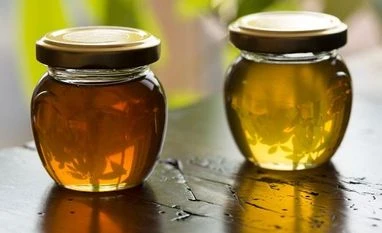As an enterprise, Under the Mango Tree (UTMT) had an unusual genesis — the name came years before the organisation did. In 1994 Vijaya Pastala was working with women’s groups on behalf of DFID in Latur district of Maharashtra's Marathwada region. She often held meetings with the women under a mango tree. Along with a few lessons she learnt about giving out grants and loans to self-help groups, her time “under the mango tree” stuck in her mind.
Today, Under the Mango Tree, a brand that Pastala set up in 2008, sources high-quality organic honey from farmers and farmers’ cooperatives, ensuring that the farmer gets a fair price for his produce. In the process, it also offers the urban consumer a range of regional varieties and flavours in honey. A hybrid enterprise comprising both a for-profit and a not-for-profit, the brand sells 65,000 kilos of honey a year working with anywhere between 4000-5000 farmers. It is available in 22 cities in India across 700 plus stores. It also sells online, through sites like Amazon, Big Basket and so on.
Pastala says her journey to the setting up of UTMT has been marked with learning experiences. After she left Gujarat and returned to Mumbai in 2006-07, Pastala, an MIT graduate, wondered what to do next. Born of a Eurasian mother and a Telugu father, she had led an unconventional life. Her interest was in rural India and she had had stints with the Aga Khan foundation, DFID, Tata Trusts, among others.
For a time, she worked with the Himachal Pradesh government helping it to reframe its forest policy. That was when she was exposed to a variety of flora and fauna and also to honey bees. Visiting a friend’s apple orchard in Narkhanda, she learnt that bee-keepers were invited into apple orchards to help in pollination and increase production. The experience stayed with her when she got back to her urban environment in Mumbai.
Her career in the development sector had taught her something else: the limitation of grants and donations. Not only was one limited by the funds in terms of scaling, she herself had been instrumental in disbursing a number of grants and loans without doing any real due diligence. She was convinced that one had to have a product that was saleable and marketable, one that could stand on its own two feet and not on the strength of the wider community it benefited. “People should be willing to pay for the product itself, and not because they consider it charity,” she says.
Then in 2008 December, Pastala participated in a gourmet food show in Mumbai where she showcased various types of honey, which she sourced from her NGO network, to see if people were interested in this. Soon after this, she founded UTMT.
Pastala counts many learnings as she changed from what she calls an “NGO type” to a businesswoman. For one, she realised that running an enterprise and running a profitable enterprise were two very different things. Unlike in the NGO sector, where donations, grants and loans are given out quite easily, raising equity capital or getting funded by investors involves a certain degree of accountability. “One learns the discipline required, especially with financial matters and how it is critical to bring in all the efficiencies possible to make the business viable,” she says. In the for-profit part of her business, Pastala has raised two rounds of funding through Acumen and Firstlight Ventures and is currently in the process of raising the third round.
At present, the consumption of honey is quite low in India as compared with most countries. For example, India consumes one-and-a-half teaspoons of honey per head per year whereas in Germany the corresponding figure is one-and-a-half kg. Hence, there is considerable scope for growth in the market for honey here, although changing habits is never easy.
Pastala now has nine varieties of honey under the UTMT brand and is yet to tap the export market. However, by and large, investors prefer a more diversified range of products, she says. Vineet Rai, founder of Avishkaar-Intellecap Group, argues that the UTMT model is “difficult to scale” and hence funding it is not easy. Yet he says that the company has had a real impact in improving the lives of farmers and could be “transformational” if longer term funding could be made available to it. “UTMT’s journey has made me rethink about limited life impact investing,” says Rai.
Paul Basil, founder and CEO of Villgro, which supports entrepreneurs at later stages and also supported Pastala, adds that a consumer product like this requires considerable investment and resources in differentiated branding, a strong distribution push, working capital and a powerful sales engine. These aren’t easy tasks, but in his view, Pastala is working patiently at each of them.
Pastala feels that perhaps the most important lesson that she has derived from her UTMT experience is that it is not easy to run a for-profit and a not-for-profit under the same umbrella. She says that it is tough to merge the two philosophies and ethos while trying to match the pace of growth of the two verticals. But then Pastala has never been short on perseverance. This bee is firmly in her bonnet.
Unlock 30+ premium stories daily hand-picked by our editors, across devices on browser and app.
Pick your favourite companies, get a daily email with all news updates on them.
Full access to our intuitive epaper - clip, save, share articles from any device; newspaper archives from 2006.
Preferential invites to Business Standard events.
Curated newsletters on markets, personal finance, policy & politics, start-ups, technology, and more.



)